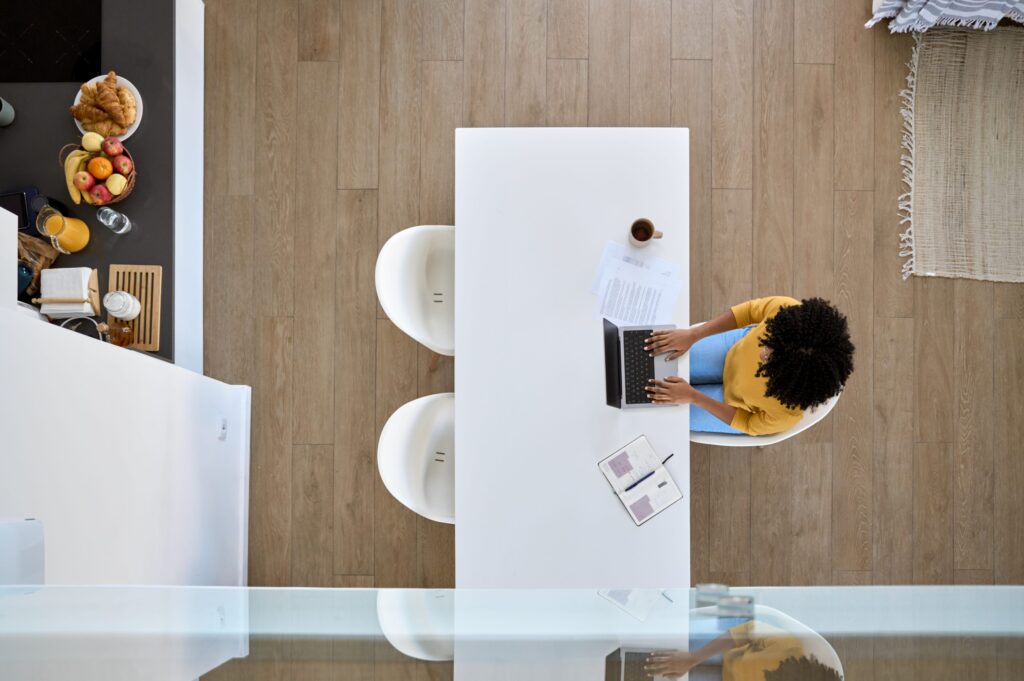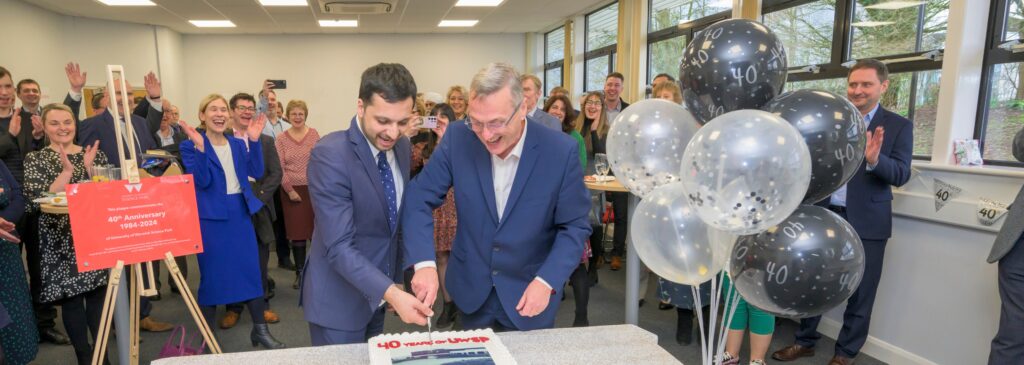
In 2025, more teams are embracing the hybrid work model. But what is this? A hybrid work model is where some employees work remotely, which could be from home, a cafe, or even abroad. Others work from the office, and many do a mix of both. It’s flexible, modern, and often what employees want. In fact, in 2025, there are an estimated 165,000 Brits who work solely remotely, otherwise described as ‘digital nomads’.
But it brings a new question to the forefront: how can we build and maintain a strong company culture for hybrid workers?
Company culture has always been about connection. Sharing values, collaboration, and a sense of purpose. But when teams are distributed, keeping a positive company culture alive requires intention and creativity. Read on to explore how organisations can shape a thriving culture that supports hybrid workers, no matter where they’re based.
The new reality: culture in a hybrid work model
The hybrid work model offers many benefits, such as:
- Increased flexibility
- Better work-life balance
- Wider access to talent.
But it also presents some challenges when it comes to culture.
Without the physical “buzz” of a shared office, it’s easy for people to feel disconnected. New starters might struggle to integrate. Team dynamics can become uneven. And the informal moments that build trust, like quick chats in the kitchen, shared lunches, and spontaneous brainstorming, are harder to come by.
But that doesn’t mean culture can’t thrive in a hybrid office. It just means we need to approach it slightly differently.
Here are 6 tips on how you can get started on integrating an approach for your hybrid team.
Start with purpose and values
Culture doesn’t have to be defined by where people work; these days, it’s shaped by why they work. A strong, hybrid-ready culture starts with a clearly defined purpose and a set of shared values that guide how people behave and make decisions.
- Revisit your company mission statement. Does it relate in a hybrid context?
- Communicate your values consistently across all touchpoints. From onboarding, to performance reviews, to internal comms.
- Empower the leadership team to model those values, whether in online meetings or in-person one-to-ones.
When values are reminded day to day, they become the thread that connects hybrid workers wherever they may be!
Make communication intentional and inclusive
In hybrid teams, communication needs to be proactive, transparent and inclusive.
- Use tools like Slack or Teams for quick and casual updates, but avoid overloading people with messages.
- Rotate meeting times if you have global teams, and record key discussions so no one is left behind. These can be kept in a resource file for easy reference and for new starters to refer back to.
- Ensure that both remote and in-office team members are heard equally during meetings. Having a clear agenda and using tools like digital whiteboards can be helpful.
Creating a level playing field ensures that hybrid workers feel equally heard and included, wherever they’re based.

Redesign the hybrid office with culture in mind
The physical workspace is still hugely important, but in a hybrid office, its purpose has shifted. It’s no longer where all work happens, but more so where connection and collaboration happen.
- Design spaces that encourage interaction: think shared work lounges, hot desks, flexible meeting rooms, and breakout areas.
- Consider a mandatory in-office day once a month where teams come in together to work, socialise or hold creative sessions.
- Make the office feel like a cultural hub, not just a place for desk work.
By aligning the physical space with your cultural goals, it can make the office feel much more meaningful and a place people want to come.
Foster belonging and team spirit
Building culture for hybrid workers means being deliberate about creating opportunities for people to bond and feel part of the business.
Some ideas to encourage this:
- Set up virtual relaxed chats or ‘coffee dates’ to keep spontaneous connections alive.
- Celebrate milestones! Birthdays, work anniversaries, personal and professional wins, both publicly and privately.
- Use tools like Donut, Gather, or even a good old-fashioned quiz to keep things fun and social.
Prioritise well-being and work-life balance
Culture is also about how people feel at work. In hybrid models, boundaries can easily blur, and feelings can be hidden behind a screen.
- Encourage people to set clear work hours and take regular breaks.
- Offer mental health support, digital detox days, or no-meeting afternoons.
- Train managers and supervisors to spot signs of burnout and have open conversations around wellbeing. Keeping these super relaxed and regular can make conversations feel less daunting for staff
When you support the whole person, not just the job role, you create a culture where hybrid workers feel seen and can truly thrive.

Use technology to your advantage
Technology supports a hybrid work model, but it should help build a positive culture, not get in the way of it.
- Use platforms like Miro or Notion to keep collaboration visual and inclusive.
- Build culture dashboards to track employee engagement, feedback, and morale.
- Leverage onboarding tools that give new starters a smooth, connected experience from day one.
When done well, technology becomes the bridge between people and less of a barrier.
The future of hybrid culture
The move to hybrid is a long-term shift in how we work, not just a phase! And while it may be harder to build culture without the daily face-to-face, it’s far from impossible. So many companies do it successfully, so why shouldn’t you?
In fact, hybrid models can lead to stronger, more intentional cultures, where connection, flexibility, and well-being are built into the foundations.
As organisations across the UK adapt to this new normal, the challenge is clear: don’t just make hybrid work logistically – make it work culturally.
In the era of hybrid workers, culture isn’t confined to an office – it lives in the shared experiences, values, and relationships that connect your people.
Investing in that culture is essential. Because when people feel included, empowered, and connected to a purpose, no matter where they work, the whole organisation thrives.
But culture still needs a home. At the University of Warwick Science Park, we understand the evolving needs of modern businesses. Our flexible office spaces and Business Lounge are designed to support hybrid working, offering the infrastructure for in-person connection without the rigidity of traditional setups. Whether you’re scaling up, establishing a new base or simply rethinking how your team works, we provide the space, community and resources to help you thrive.
Get in touch with the team at University of Warwick Science Park today and give your hybrid culture a place to grow.






